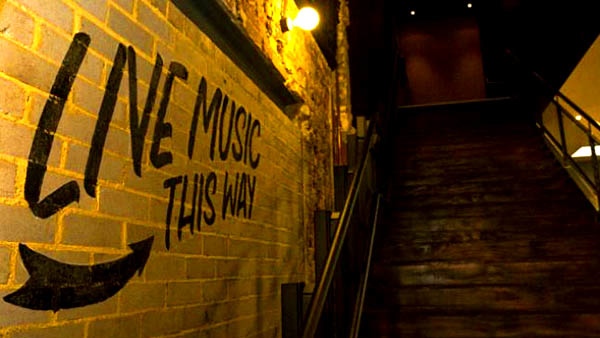NSW inquiry into music & arts economy: updates from Sydney, Newcastle & Melbourne

Members of the Australian music industry pulled no reins when appearing before committee members of the NSW government inquiry into the state’s music and arts economy.
Hearings were held in Sydney and Newcastle last week and in Melbourne in early August.
Last Friday, in the Macquarie Room at NSW Parliament, those speaking included artists KLP and The Rubens and reps from Sounds Australia, Association of Artist Managers, Keep Sydney Open, Support Act and Secret Sounds.
Millie Millgate, executive producer of exports body Sounds Australia, pointed out that while 35% of the artists showcasing internationally come from NSW, Sounds Australia missed out in the last two Create NSW funding rounds.
She said: “We genuinely encourage investment in the export of all art forms and it’s terrific to see this support delivered through the NSW Cultural Policy Framework, however glaringly absent is any inclusion of contemporary artists or music companies.”
Comparative estimates from Sounds Australia showed that in five years, the South Australian government invested $307,969 to support 41 groups and four industry professionals in their international endeavours. In two years, Victoria committed $654,865 to contemporary music for the support for 60 groups and 10 industry pros/music businesses.
NSW spent just $65,000 in ten years.
“We believe it’s time the NSW state government recognised musicians, their teams and the industry they work in as legitimate businesses, significant earners, and real trailblazers in their fields globally,” Millgate concluded.
On a similar theme, Jessica Ducrou of Splendour In The Grass expressed her frustration at how the slow movement by the NSW Department of Planning in deciding its permanency at the 600-acre North Byron Parklands was delaying the site’s 42 million expansion plans.
If no decision was made by end of the year, “then again, we are going to be treading water for the next 12 months.”
KLP and Rubens’ drummer Scott Baldwin lamented how policies, red tape and lockout laws had sapped the “motivation, inspiration and the culture” of the next generation to pursue music as a fulltime career.
Keep Sydney Open recommended a new distinct class of liquor licence for lower restrictions of venues that provide cultural services; direct business grants and tax exemptions and the introduction of the agent of change.
Jane Huxley, managing director of Spotify Australia & New Zealand and Amazon Australia’s manager of international public policy Matt Levey emphasise their commitment to Australian content in their playlists.
On Thursday, the inquiry was in Newcastle, where former Screaming Jets member and Live Music Taskforce member Grant Walmsley, venue operators Brian Lizotte (Lizotte’s) and Ian Lobb (Lass O’Gowrie Hotel), promoter Marcus Wright and musicians Joab Eastley, Spencer Scott and Tony Petersen addressed the committee.
A recurring theme in their testimonies was how strict noise regulations, a ten-year-old lockout law, booming building of apartments and a lessening amount of music venues had a negative impact on the city’s live music scene.
“It’s not about awareness, this is about real change at a legislative level,” Walmsley emphasised.
“We’re very concerned about this unbridled property development boom that’s come in and telling established venues like the Lass O’Gowrie, The Wickham Park Hotel, The Cambridge, like Lizzotte’s, that they can’t make noise anymore.”
Newcastle MP Tim Crakanthorp said Labor would take on board recommendations by the inquiry into revitalising the state’s creative economy into next year’s state election.
Many of the Newcastle suggestions wanted something like the agent of change to protect established venues from newly arrived residents – which Victoria adopted in 2014.
At the Melbourne hearing, Nicholas Tweedie, barrister at Owen Dixon Chambers West, explained the workings of the agent of change to the committee.
“But it is actually the case that it is often far more efficient and more cost effective for the new developer to assist the venue to control noise at its source,” he pointed out.
“It is much easier to stop the noise getting out of a building than to noise-proof a new building.”
Adam Janke and Alex Kelsey of The Mushroom Group pointed out how they diffuse the situation at their large music events.
“Strategies that we have taken is that we offer complimentary tickets to events that are going to impact local residents with sound,” Jamke revealed. “That seems to be a really big winner.
“We have had really strong uptake in that regard. It is a combination of managing the technical side of the sound – ensuring that we have full-time measures taking place and monitoring taking place – and dealing with those residents in advance.
“Then we also run temporary hotlines for event days, where people can make a complaint and we then deal with that complaint.
“In reality, it is very much a situation of people just wanting to be heard. They want their voices to be heard. They want it to be acknowledged that you are causing a problem for them.
“Once you acknowledge what that problem is they seem to calm right down and we are able to come to an amicable conclusion.”






























